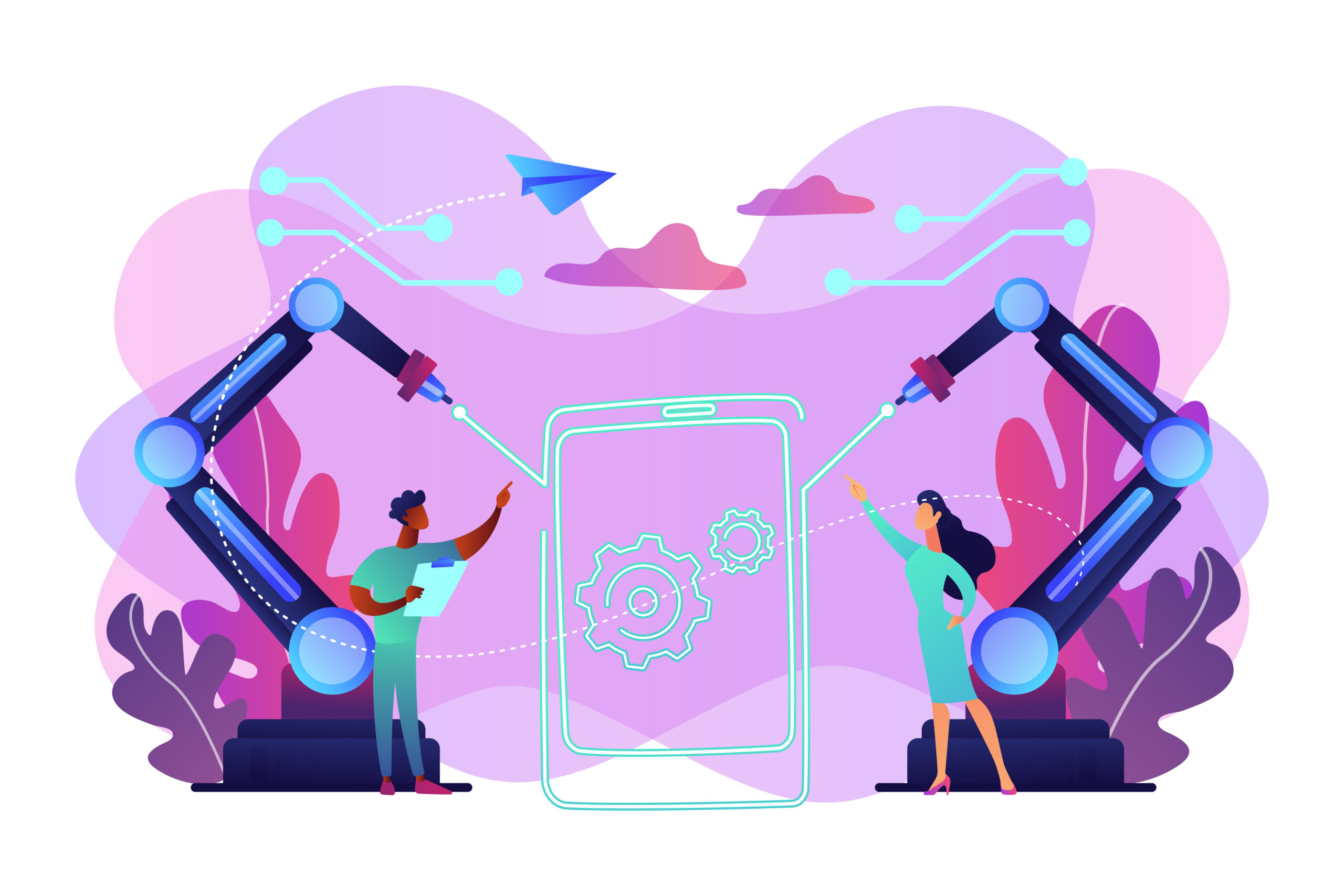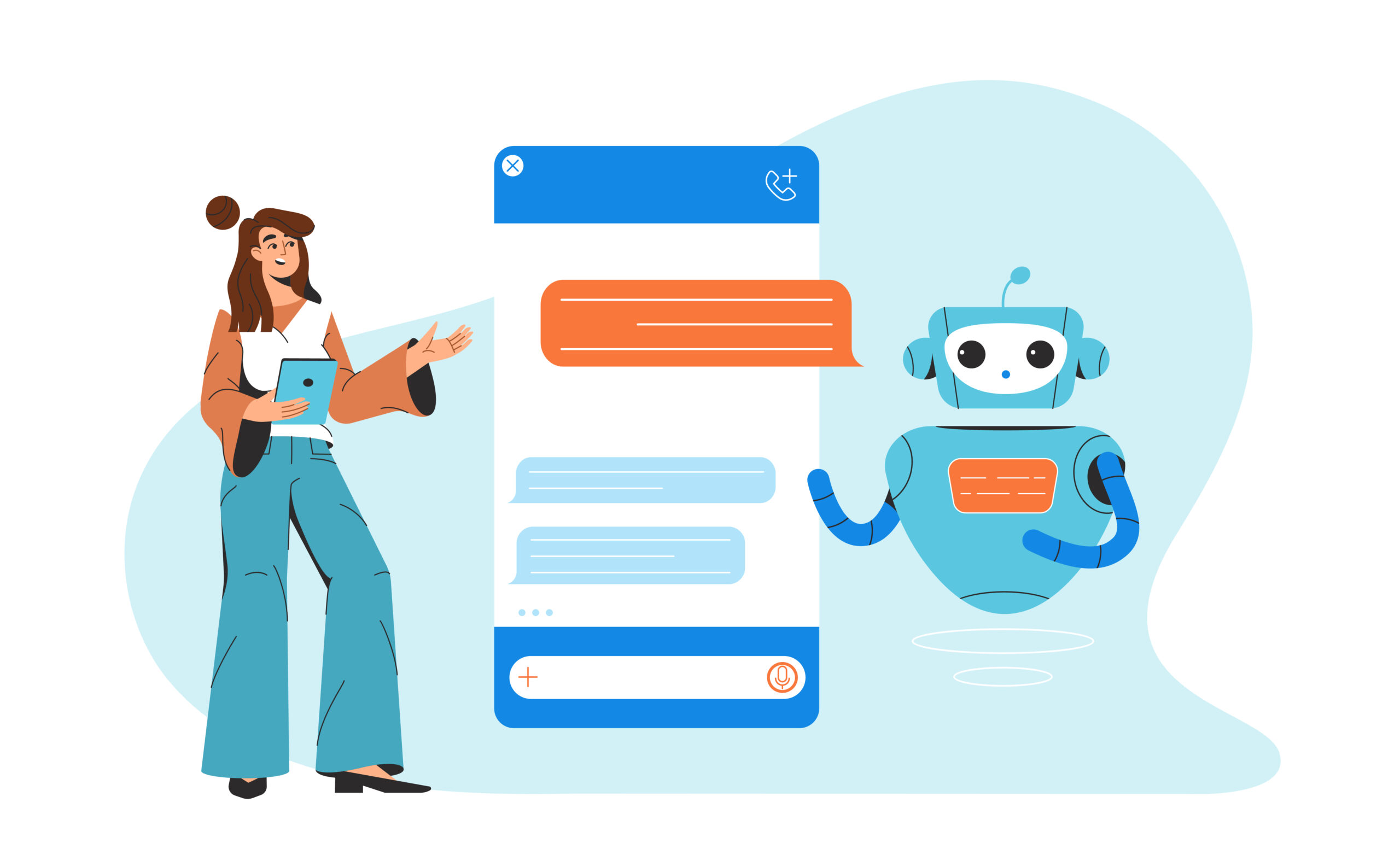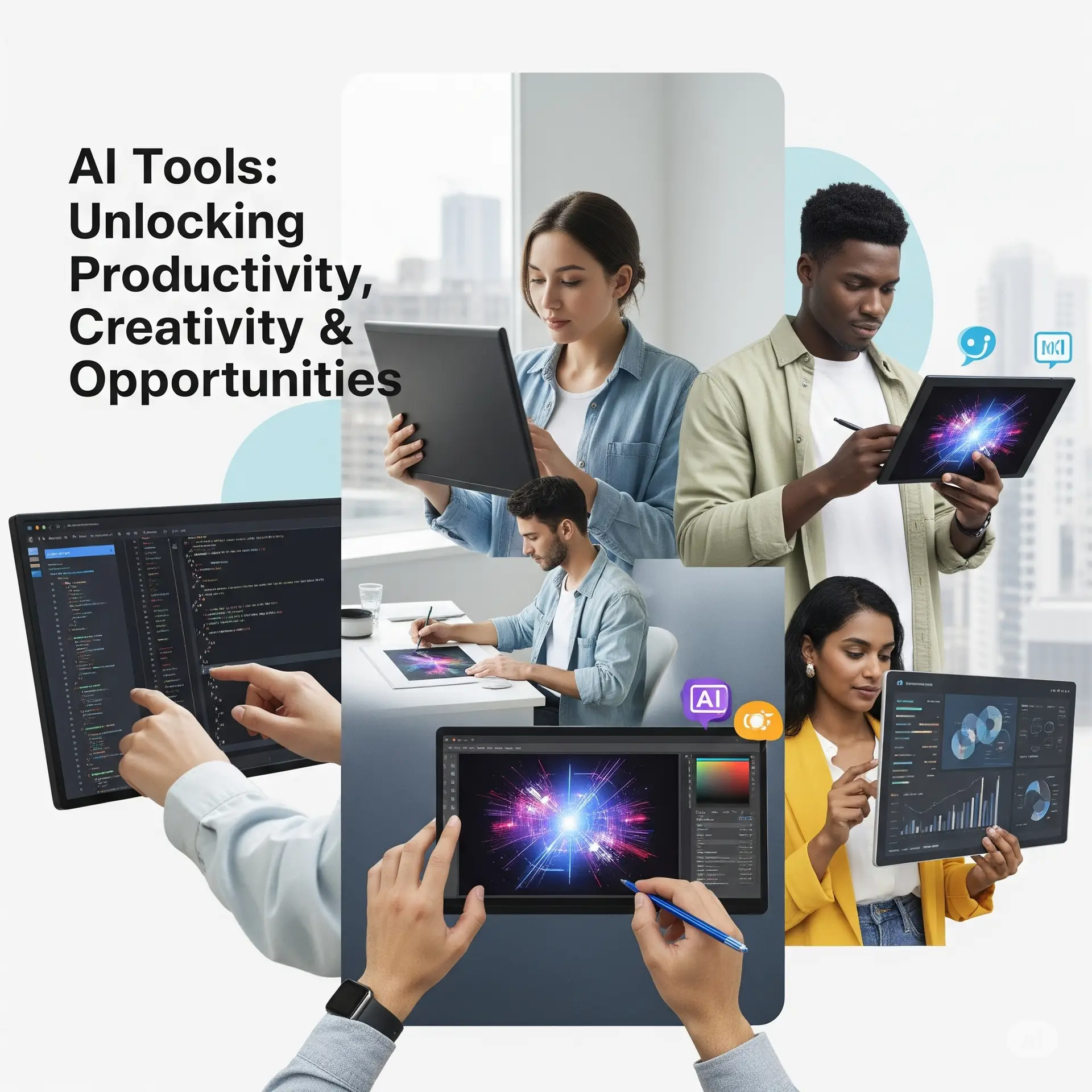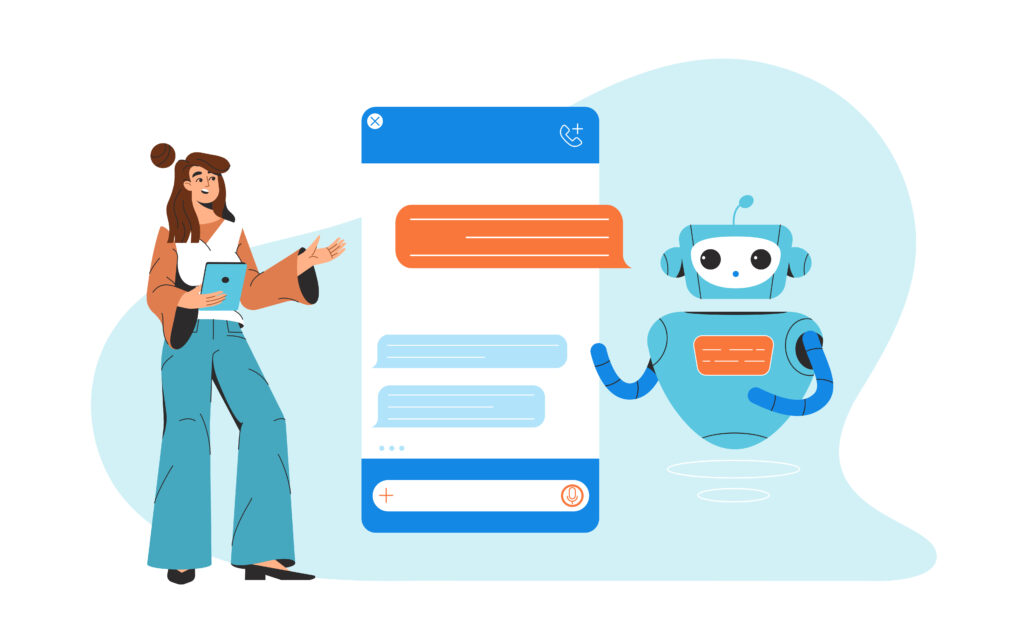Table of Contents
ToggleThe AI-Powered Entrepreneurial

The AI-Powered Entrepreneurial Revolution
This document summarizes key themes and important insights from Ishan Sharma's TEDxIITDelhi talk, "AI tools that can support entrepreneurship." The core message is that Artificial Intelligence (AI) is democratizing entrepreneurship, enabling individuals without traditional coding or specialized skill sets to build, launch, and scale businesses with unprecedented speed and efficiency. The talk emphasizes a paradigm shift from specialized roles to a "builder" mindset, where clarity of communication with AI tools becomes the new superpower.
---I. The "Builder" Mindset: Communication as the New Superpower
Sharma highlights a fundamental shift in the skills required for success, particularly in the context of AI's rapid evolution.
- Decline of Traditional Specialized Roles: The speaker asserts that
"the typical roles that we have of you know a designer a developer, a marketer are all going away and and everyone is supposed to be a builder now."
This implies that individuals will increasingly need a broad understanding of various business functions, rather than deep specialization in one. - The Rise of "Product-First Approach": Referencing his interaction with the co-founder of Notion, Sharma explains that successful companies are hiring individuals with a "product first approach," meaning
"developers who can also design interfaces... designers who also have an understanding of business and how their UI impacts the revenue."
This emphasizes the importance of understanding the end-to-end impact of one's work. - Clarity of Communication is Paramount: Citing the creator of Replit, Sharma states,
"I think it's really important for people to focus on communicating clearly what they want that according to him is the greatest skill that you can learn today in 2025."
This is presented as the "new superpower," replacing the need for extensive coding knowledge. The meme cited("engineers who can't code marketers who can't market they come together and they build a thing called wipe startup")
humorously encapsulates this idea:"we don't exactly know what we are building or how we are building it but we have an idea for exactly what we want it to look like and we're describing it to AI tools and it's building in real time."
II. AI Tools Automating Every Facet of Business
Sharma systematically demonstrates how AI tools can automate key business functions, making entrepreneurship accessible to non-coders and accelerating the time to market.
Research & Idea Validation (Manis):
Manis, a general-purpose AI agent, is presented as an "exceptional tool" for "research at scale." It automates "market research," "lead generation," and "financial research," saving "countless hours" by analyzing "hundreds of websites" to provide "the most in-depth information." Sharma recommends asking,
"this is my idea give me a short analysis of my idea and do a deep research on it."
App & Website Development (Replit):
Replit allows users to "build apps super fast" by simply describing what they want. It "creates beautiful interfaces... builds the logic in real time... builds the server the databases connect it together and present to you a fullscale application." A compelling example is "magic school," built by a 50-year-old school principal with no coding knowledge, which became a "unicorn company." This tool enables rapid prototyping and launch, allowing entrepreneurs to "get the progress and growth and then later on think about hiring a developer."
Sales & Lead Generation (Apollo & Instantly):
- Apollo: A "brilliant tool" for lead list creation. Users can input target customer profiles (ICP) with filters like industry, funding, and employee count, and it "will build out the entire lead list for you." It can also identify specific roles within companies (e.g., "marketing people," "founders") and "gets you the email of anyone that you want to reach out to."
- Instantly: Used for "automating the cold outreach funnel." It takes the lead list from Apollo to "start sending out cold emails," enabling continuous lead generation and client conversion, even remotely.
Content Creation (HeyGen & ElevenLabs):
These tools enable the "automation of content," eliminating the need for constant in-person recording or expensive creators.
- HeyGen: "Exceptionally good at creating avatars" and generating AI-powered videos. Users can "train it on my audio [and] put a 5 minute video of me speaking to Hen and it generates a amazing video which is AI generated."
- ElevenLabs: excels at "taking the audio and creating AI generated audio from it." This combination allows for scaled brand and content presence, with examples of individuals achieving "a million subscribers on Instagram followers" through AI-generated videos.
Marketing & Ad Creation (Photo Image Generator):
This tool automates the creation of marketing ads, eliminating the need for professional designers or copywriters. Users can "simply describe the type of ad you want it to create," upload a product picture, and ask it to "make an ad in this style this format," leading to "amazing visuals using your product in different scenarios."
Automated Learning (Google AI Studio / Gemini):
This tool simplifies learning new software by allowing users to share their screen. Google AI Studio/Gemini "will look at your screen and it will teach you how to use that software," effectively providing an "AI assistant" for self-directed learning.
---III. The Rise of One-Person Businesses and "Building in Public"
The accessibility of AI tools empowers individuals to create highly successful businesses with minimal resources and encourages a transparent, collaborative approach to development.
- One-Person Businesses: Sharma emphasizes that "it's easier than ever before for you to start building oneperson businesses." An example is "Zach on Twitter," a 17-year-old who built Cal.ai, a calorie tracking app, which became "number one on Play Store and App Store and he makes $30 million per year with it."
- Building in Public: This strategy involves sharing "your journey of launching the tool on Twitter" including "wins your losses your learnings." The benefits are significant:
- Free Advice: "get free advice from the most skilled people from the most experienced people."
- Free Users: "get free users because you're launching it you're showing demos of it."
- Free Visibility: "also get free visibility in front of venture capitalists so you get funding advice users revenue."
Sharma credits his own visibility through content creation for "world's biggest companies" reaching out to him.
IV. AI: An Accelerator for the Skilled, Not a Job Replacement
Sharma concludes by reframing the common anxiety around AI and job displacement, emphasizing its role as an amplifier for human talent.
- AI as an Accelerator:
"AI is not here to take your job ai for the top skilled people will only accelerate your learning and your ability to build stuff fast."
This suggests that those with domain expertise and a strong understanding of what they want to achieve will be empowered to execute at an unprecedented scale and speed. - The Power of Generalists: Despite showcasing impressive AI-powered creations, Sharma humbly states,
"I'm just a generalist i'm not the best designer i'm not the best developer but I'm great at writing."
This reinforces the idea that strategic thinking and clear communication, rather than specialized technical mastery, are key in the AI-driven landscape. He encourages listeners to"imagine what a one the top 1% designer can build as a 1% design... you know what you want to build and you can write the prompts for it and you can create amazing ads you can create amazing websites as a developer using these AI tools."
The AI-Powered Entrepreneurial Revolution: FAQ
1. How is AI transforming entrepreneurship and business creation, especially for non-coders?
AI tools are drastically lowering the barrier to entry for entrepreneurship, enabling individuals without traditional coding skills to become "builders." Previously complex tasks like developing applications, conducting market research, automating sales, and creating marketing content can now be achieved in hours or minutes by simply describing desired outcomes to AI. This shift empowers a new generation of entrepreneurs to launch "one-person businesses" efficiently and effectively.
2. What is the "product-first approach" and how does it relate to the changing landscape of job roles in the AI era?
The "product-first approach" emphasizes hiring individuals who possess a broad understanding of the entire product lifecycle, rather than specializing in a single traditional role (e.g., designer, developer, marketer). This means developers should understand design principles, and designers should grasp business implications like revenue and retention. With AI automating many technical tasks, the traditional boundaries between these roles are blurring, and everyone is expected to be a "builder" with a holistic perspective.
3. Why is "communicating clearly what you want" considered the most important skill in the age of AI?
As AI tools become capable of generating complex outputs from simple descriptions, the ability to articulate your vision with clarity and detail becomes paramount. It's less about technical execution and more about effectively prompting AI to create what you desire, whether it's an app design, a marketing campaign, or a research report. This clear communication acts as a "new superpower" for anyone looking to leverage AI effectively.
4. What are some specific AI tools mentioned that can automate various aspects of a business, and what do they do?
Several AI tools are highlighted for automating key business functions:
- Manis: A general-purpose AI agent for in-depth market research, lead generation, and financial analysis, saving countless hours.
- Replet: Enables rapid application and website development by simply describing the desired features, building interfaces, logic, servers, and databases in minutes.
- Apollo: A tool for building targeted lead lists based on specific industry, funding, and employee criteria.
- Instantly: Automates cold email outreach by integrating with lead lists, streamlining the sales funnel.
- HeyGen and ElevenLabs: Tools for AI-generated content creation, allowing users to produce videos with AI avatars and audio, enabling scalable brand and content presence.
- Photo Image Generator: Creates marketing ads by allowing users to upload product images and describe the desired ad style, generating amazing visuals instantly.
- Google AI Studio / Gemini: An AI assistant that can teach users how to use any software by looking at their screen, automating the learning process.
5. How can individuals leverage AI to create and scale content and marketing efforts?
AI tools like HeyGen and ElevenLabs allow for the creation of AI-generated videos with custom avatars and audio, eliminating the need for traditional recording and production. This enables founders to scale their brand and content on social media significantly. For marketing, tools like Photo Image Generator can create professional-grade advertisements from simple descriptions and product images, bypassing the need for designers and copywriters.
6. What is "building in public" and what are its benefits for entrepreneurs?
"Building in public" involves openly sharing the journey of creating and launching a product or business on platforms like Twitter. This includes sharing wins, losses, and learnings. The benefits are substantial:
- Free Advice: Access to feedback and guidance from skilled and experienced individuals.
- Free Users: Gaining initial users by showcasing demos and progress.
- Free Visibility: Attracting attention from venture capitalists, leading to potential funding opportunities.
- Networking: Increasing personal visibility can lead to dream job opportunities, brand collaborations, and invitations to exclusive industry events.
7. How does AI impact the roles of highly skilled professionals, and does it threaten their jobs?
For top-skilled individuals, AI is not seen as a job replacement but rather an accelerator. AI tools can significantly enhance their learning capabilities and their ability to build and execute projects at a much faster pace. For example, a top 1% designer can leverage AI to create amazing ads and websites with incredible speed and efficiency, by simply describing their vision. AI empowers skilled professionals to achieve more with less effort.
8. Can you give an example of a successful "one-person business" built with the help of AI tools?
Zach, a 17-year-old, built an app called Cal.ai, a simple calorie tracking application. By leveraging AI tools, he was able to develop this app, which subsequently became the number one app on both the Play Store and App Store, generating an impressive $30 million per year. This exemplifies how AI enables individuals to create highly successful businesses on their own, even without extensive coding experience.
Posts Gallery

Agentic AI for Enterprise Automation
Discover how Agentic AI revolutionizes enterprise automation, boosting efficiency and strategic decision-making.
Read More →
How Agentic AI Works: Intent to Execution
Unpack the intricate process of Agentic AI, from understanding user intent to executing complex tasks autonomously.
Read More →
Purpose & Use Cases of Agentic AI
Explore the diverse applications and strategic importance of Agentic AI across various industries and daily operations.
Read More →
What is Agentic AI?
A foundational article explaining the core concepts of Agentic AI, defining its components and its role in modern automation.
Read More →
Why Agentic AI?
Understand the compelling reasons and significant benefits that make Agentic AI a transformative technology for efficiency and innovation.
Read More →
AI Tools Spotlight
A comprehensive overview of cutting-edge AI tools that are shaping the future of automation and intelligent systems.
Read More →

